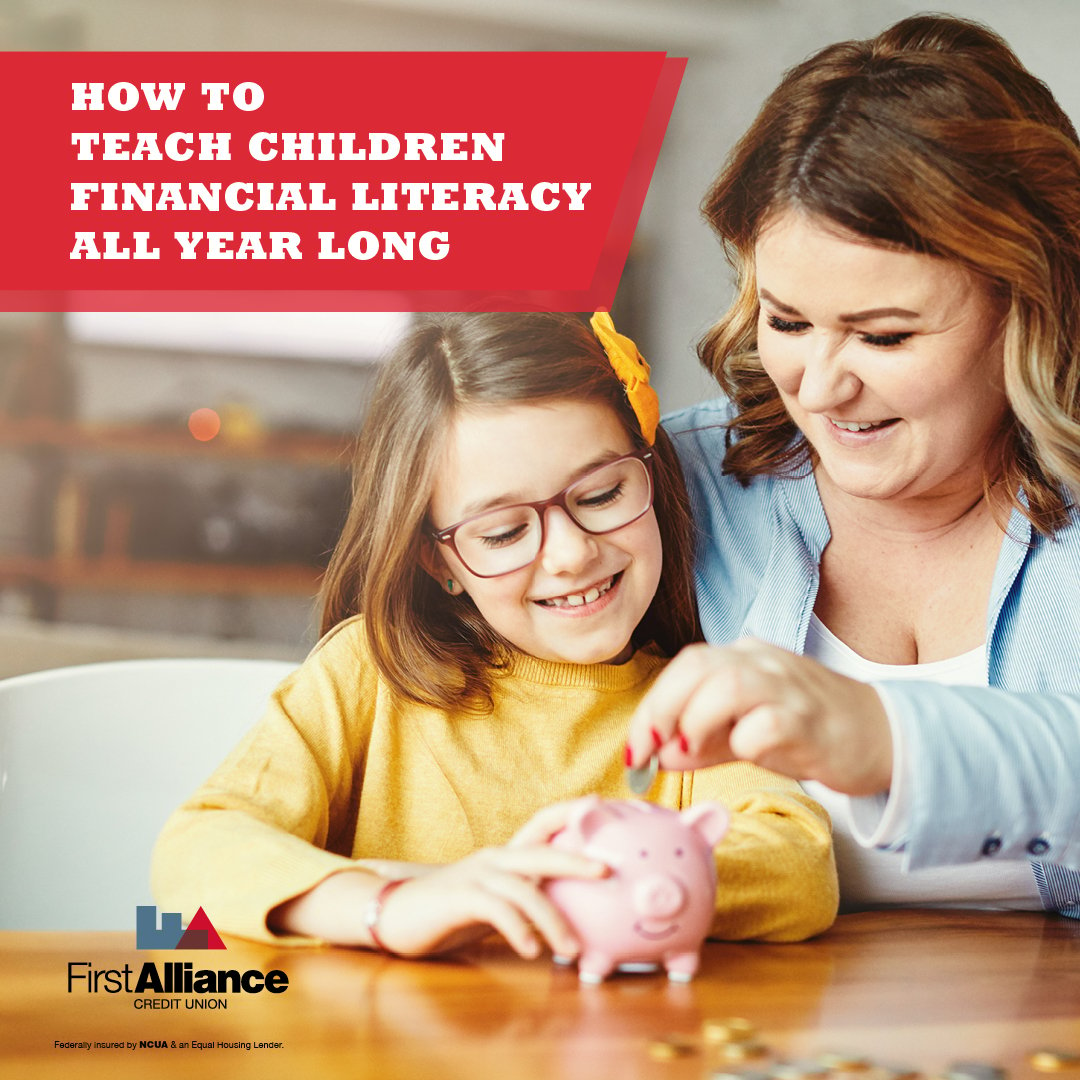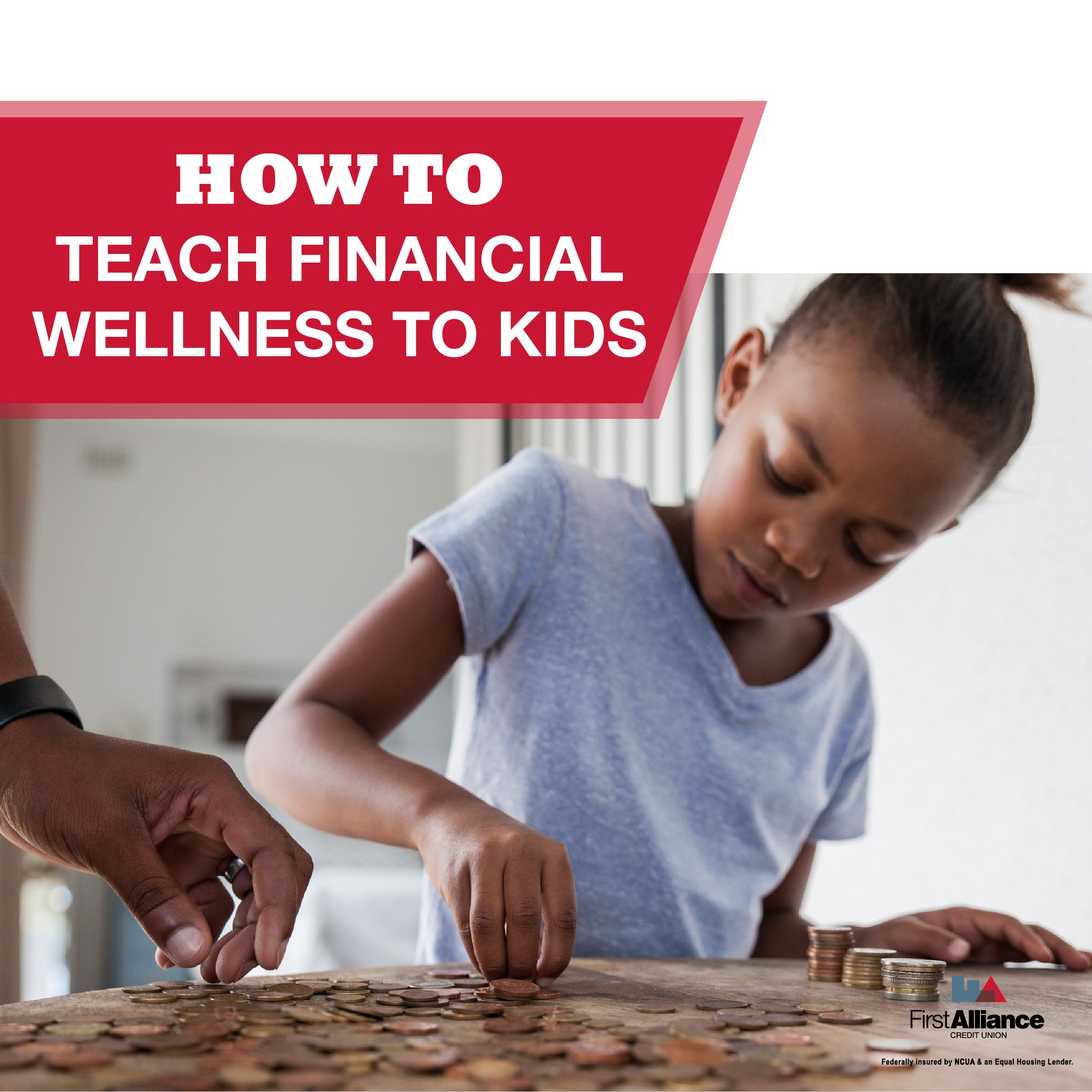How to Teach Children Financial Literacy all Year Long
April is Youth Financial Literacy month, and as part of this several credit unions, including First Alliance, are putting on programs to help...
2 min read
![]() First Alliance Credit Union
:
Apr 3, 2018 8:02:00 AM
First Alliance Credit Union
:
Apr 3, 2018 8:02:00 AM
.jpg)
Even with unemployment and national debt at all-time highs, it's still shocking when your family faces a job loss or other financial setback. Most of us experience the emotional impact of money at some point in our lives. And, when adults are hit with a financial crisis, our children are impacted whether we realize it or not.
.jpg?width=600&height=315&name=FA820_23_Blog_FinancialCrisis%20(1).jpg)
As a parent coming home after a job loss, the stress you carry will be apparent to your children. Kids are very observant. If you are upset, they usually can tell. It can be difficult to decide what to tell your children about the household financial status. But open and honest communication is the key in helping your children cope and feel secure during hard financial times.
By relieving stress in a positive way and keeping the whole family involved, financial issues can bring a family closer together. Difficult times open a window of opportunity to educate your children about money, budgeting and the importance of saving.
1) Explain the situation in a simplified way that your kids can understand.
2) Keep conversations positive. Everyone will be nervous about the unknown, but keeping a positive attitude will help them avoid unnecessary stress.
3) Construct a scaled back budget and walk your family through it so each person is on the same page. Keeping the hole family involved will promote a sense of unity so everyone can do their part. Maybe even post the budget on the refrigerator and update it daily.
4) Give children power in the budget. Give them choices about which activities are most important to them, making them feel they are contributing and that their opinion matters.
.jpg?width=600&height=315&name=FA820_23_Blog_FinancialCrisis2%20(1).jpg)
5) Try to keep day-to-day routines similar to pre-crisis routines. You can still have Family Fun Night, but make it an at-home dinner and game night instead of dinner at a restaurant and a move at the theater. Take the time to brainstorm free activities to do together.
6) Consider allowing an older child or teen to watch as you pay the bills and review your checking account so they can learn first hand.
7) It can be fun to find deals and save money, so make savings a game. Have weekly competitions to see who find the best price on groceries, movie tickets, sports events, etc.
Financial struggles are difficult on all members of a family. Instead of allowing this to be the cause of arguments, make it a time to bring the family closer by working together to get through the crisis.
This article was provided by our partners at GreenPath Financial Wellness.

April is Youth Financial Literacy month, and as part of this several credit unions, including First Alliance, are putting on programs to help...

Practical money management skills learned at an early age can have a lasting impact on the rest of your child’s life. In fact, this is one of the...

If you have children, the odds are you’ve had to figure out how to handle distance learning, thanks to the COVID-19 pandemic. This isn’t an easy time...